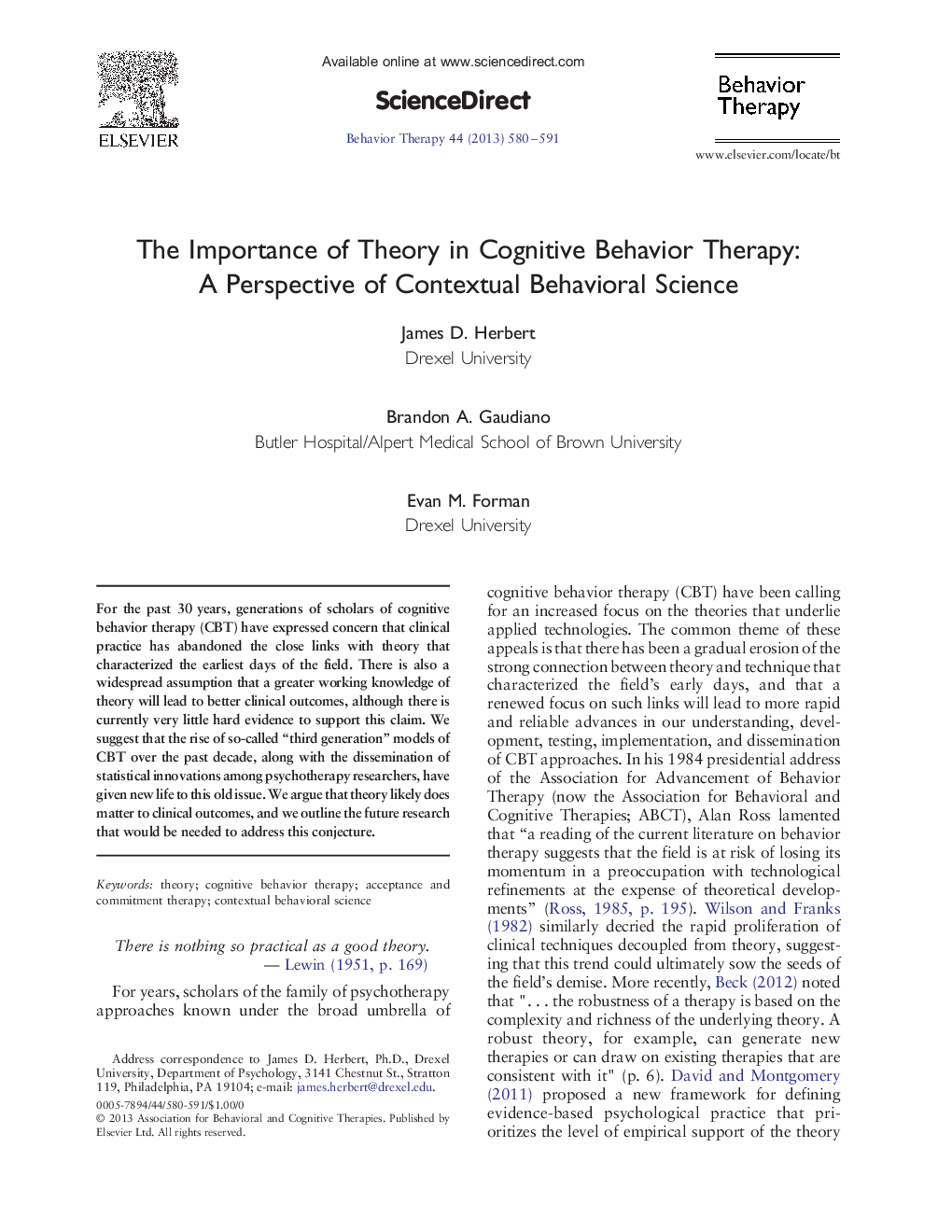| Article ID | Journal | Published Year | Pages | File Type |
|---|---|---|---|---|
| 901379 | Behavior Therapy | 2013 | 12 Pages |
•Scholars of CBT have long called for greater ties between theory and practice•Recent developments have given new life to the importance of theory•New acceptance-based models have emphasized links between theory and practice•The optimal role of theory in clinical practice is ultimately an empirical question•We outline research and conceptual analyses needed to address this issue
For the past 30 years, generations of scholars of cognitive behavior therapy (CBT) have expressed concern that clinical practice has abandoned the close links with theory that characterized the earliest days of the field. There is also a widespread assumption that a greater working knowledge of theory will lead to better clinical outcomes, although there is currently very little hard evidence to support this claim. We suggest that the rise of so-called “third generation” models of CBT over the past decade, along with the dissemination of statistical innovations among psychotherapy researchers, have given new life to this old issue. We argue that theory likely does matter to clinical outcomes, and we outline the future research that would be needed to address this conjecture.
